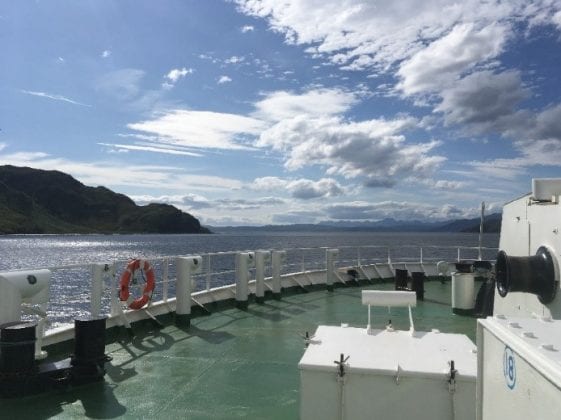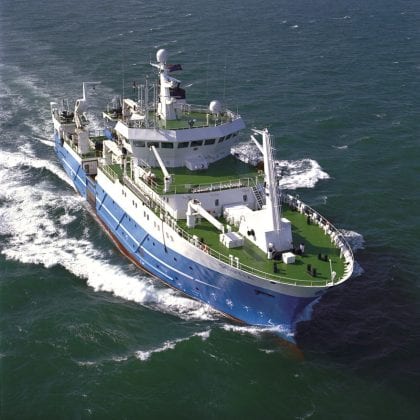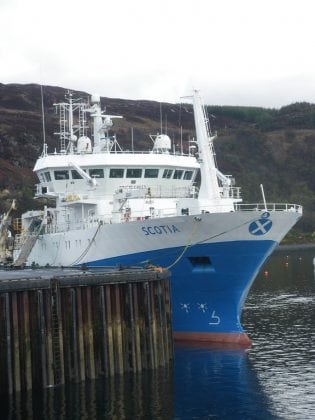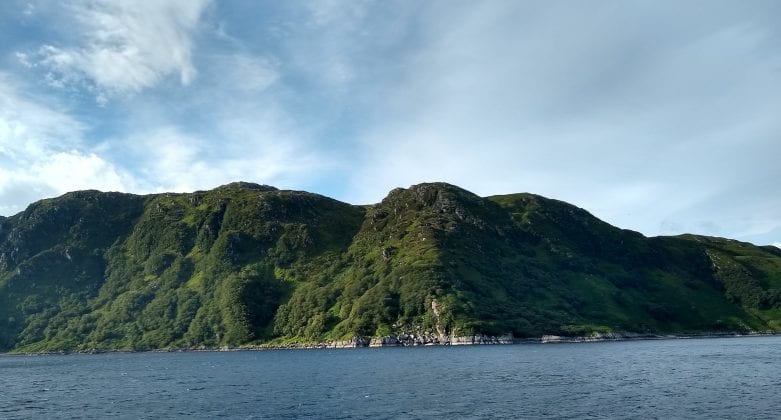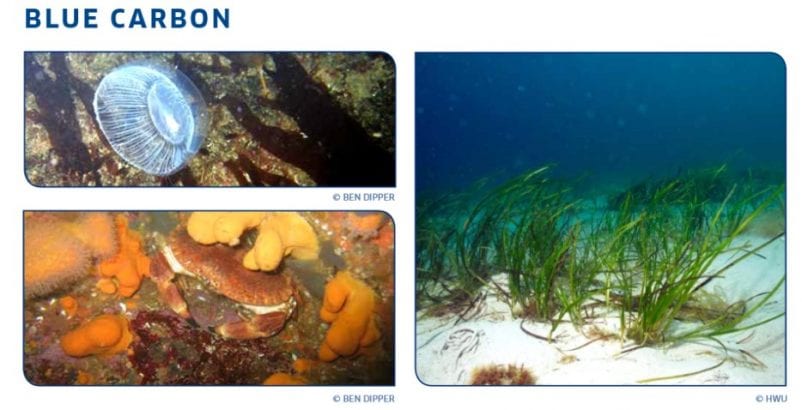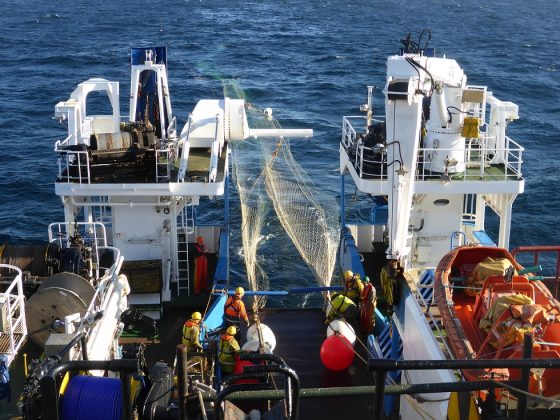Marine
-
New Blue Carbon Resource for Marine Scientists
24th February 2020 by Marine Directorate Communications
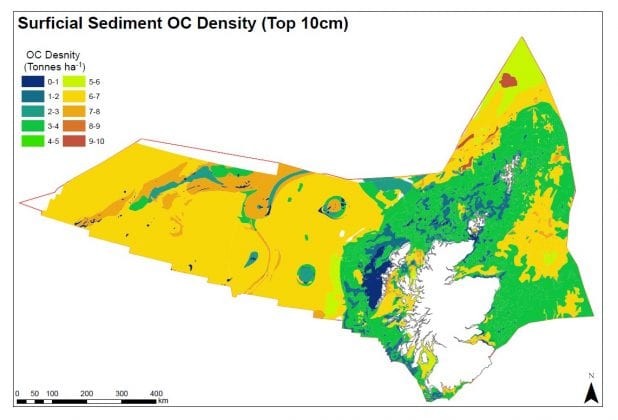
Two new science reports have been published today by Marine Scotland Science (MSS) that will be used to improve our understanding and management of Blue Carbon; carbon found stored beneath the sea in sediment, shells and living plants. One is a collaborative project with University of St Andrews ‘Re-Evaluating Scotland’s Sedimentary Carbon Stocks’ and the...
-
Scotia’s Hunt for Organic Carbon
21st August 2019 by Marine Directorate Communications

I am a second-year PhD student at the University of St Andrews and was recently very fortunate to be one of the research scientists aboard the Scotia 1019S survey that took us across Scotland’s seas at the end of July. Following an unpredictable summer, we weren’t sure of what to expect weather-wise at sea. However,...
-
Coring the Scotia on-board the Scotia
16th August 2019 by Marine Directorate Communications

It is 0300 in the morning and the MRV Scotia is steaming to the eastern section of the Fladen ground, in the central North Sea. We have received the go-ahead to run a short survey over the giant Scanner and Scotia pockmark complexes. These large conical shaped depressions found occasionally in the North Sea and...
-
Scotia and Carbon
13th August 2019 by Marine Directorate Communications

The 1019S Scotia cruise (21–31 July) was a 10 day long oceanographic research cruise focusing on the role of carbon within the marine environment, primarily within the water column and marine sediments. I took part in this cruise in order to gather samples for use in my PhD research project from hot spot fishing grounds...
-
Scotia Amongst the Fjords
5th August 2019 by Marine Directorate Communications

I was one of 11 scientists on-board the MRV Scotia seeking to better understand carbon dynamics in the sediments and water column around Scotland. My personal goal was to sample sea lochs (fjords) around the northern and western coast of Scotland. Fjords are globally recognised as hotspots for the burial and storage of organic carbon...
-
Blue Carbon in the Marine Ecosystem
23rd July 2019 by Marine Directorate Communications

MRV Scotia Survey: 1019S Programme Duration: 22-31 July 2019 Objectives: Sediment sampling in the Moray Firth (grabs and cores). Sediment sampling along transect from Moray Firth to Fladen Ground (grabs and cores). Sediment sampling on the Fladen Ground (grabs and cores). Sediment sampling along transect from Fladen to Pentland Firth (grabs and cores). Gravity coring...
-
Researching Blue Carbon – meet Connie Nutbrown
3rd April 2019 by Marine Scotland Communications

Last December, we told you about a new Scottish Government funded research programme into Blue Carbon which started in early 2017 as part of a commitment in the 2017-2018 Programme for Government. The current focus of the programme revolves around measuring the ability of various habitats to sequester carbon, understanding how it is stored for...
-
Researching Blue Carbon – meet Dani Whitlock
27th March 2019 by Marine Scotland Communications

Last December, we told you about a new Scottish Government funded research programme into Blue Carbon which started in early 2017 as part of a commitment in the 2017-2018 Programme for Government. The current focus of the programme revolves around measuring the ability of various habitats to sequester carbon, understanding how it is stored for...
-
Reviewing our Year of Science
18th January 2019 by Marine Directorate Communications

Today sees the publication of our Annual Science Review for 2017/18. The Review, which highlights the impacts and achievements of Marine Scotland Science (MSS), details the overall contribution and support that our scientists make to the work of Marine Scotland. During this period we have published over 100 peer-reviewed papers and supported more than 75...
-
Researching Blue Carbon – meet Alasdair O’Dell
23rd November 2018 by Marine Scotland Communications

A new Scottish Government funded research programme into Blue Carbon began earlier this year as part of a commitment in the 2017-2018 Programme for Government. The current focus revolves around measuring the ability of various habitats to sequester carbon, understanding how it is stored for the long term, and building an evidence base on the...

